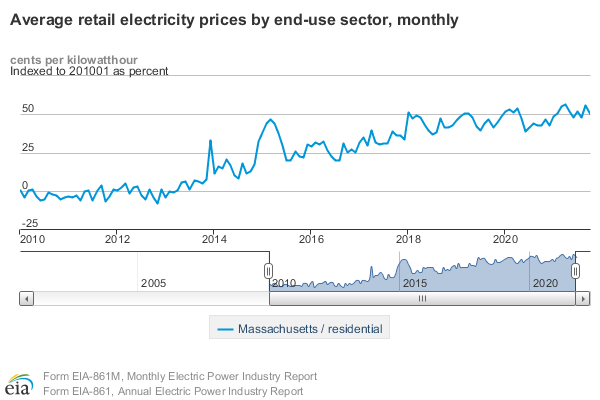
Electricity is a fundamental necessity in our modern world. It powers everything from our homes to our workplaces, and we rely on it for our daily routines. However, the cost of electricity is not always within our control. Electric companies like NGrid and Eversource have the power to increase prices without consumer input. But why is this the case?
Regulation and Oversight by State Utility Commissions
The reason why electric companies can increase prices without consumer input is due to regulation and oversight by state utility commissions. These commissions are government bodies that set the rates that utilities can charge for electricity and gas. They have the authority to approve or deny proposed rate increases, ensuring that consumers are not unfairly charged.
The Process of Rate Increases
When a utility company wants to increase its rates, it must file a request with the utility commission. The company must provide evidence to support the increase, such as the cost of producing and delivering electricity, infrastructure investments, and regulatory compliance costs. The commission then reviews the request and makes a determination based on various factors. If the commission approves the rate increase, the utility company can then adjust its prices accordingly without input from consumers.
Why Utility Companies May Need to Increase Rates
Utility companies may need to increase rates for several reasons. One of the main factors is the cost of fuel. The price of fuel used to generate electricity can significantly impact the cost of electricity generation. If the cost of fuel increases, the cost of electricity generation also increases, which can lead to higher electricity prices.
Another reason why utility companies may need to increase rates is infrastructure investment. Maintaining and upgrading electricity infrastructure is crucial for ensuring that electricity is delivered reliably and efficiently. If significant investments are required to modernize and maintain the electricity grid or to build new power plants, the cost of those investments may be passed on to consumers through higher electricity rates.
Environmental regulations can also impact electricity prices. Governments may impose regulations on power plants to reduce their environmental impact, such as by requiring them to reduce greenhouse gas emissions. Compliance with such regulations can increase the cost of electricity generation, which can in turn lead to higher electricity prices.
Market competition can also affect electricity prices. In markets where there is limited competition, electricity prices may be higher. Conversely, in markets where there is more competition, electricity prices may be lower.
Finally, the level of demand for electricity can impact prices. If demand for electricity is high, electricity prices may increase to match the supply. Conversely, if demand for electricity is low, electricity prices may decrease.
Consumer Feedback and Participation in the Regulatory Process
While electric companies can increase electricity prices without consumer input, consumers can still provide feedback and participate in the regulatory process. The commission must hold public hearings or comment periods where consumers can voice their concerns and opinions on proposed rate increases. Consumers can also contact their state utility commission to provide feedback or file complaints if they believe their rates are too high.
In conclusion, electric companies like NGrid and Eversource can increase electricity prices without consumer input because they are regulated by state utility commissions. However, these commissions attempt to ensure that proposed rate increases are fair and reasonable. Consumers can still provide feedback and participate in the regulatory process to express their opinions on rate increases

